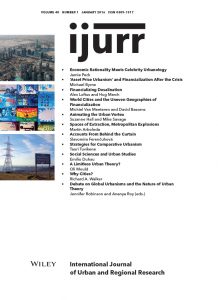Why do cities exist? Geographers Allen Scott and Michael Storper recently put the question before the field of urban studies and provided a clear and concise answer in terms of economies of agglomeration and the urban land nexus. I argue that two other basic elements must be added to this duo: the spatial concentration of economic surplus by ruling classes and states and the creation of a built environment or urban landscape. In addition, I take issue with Scott and Storper’s neglect of the problem of scale in urban theory and their overly tidy sense of what constitutes a scientific approach to complex phenomena like cities.

